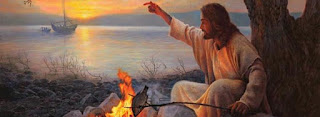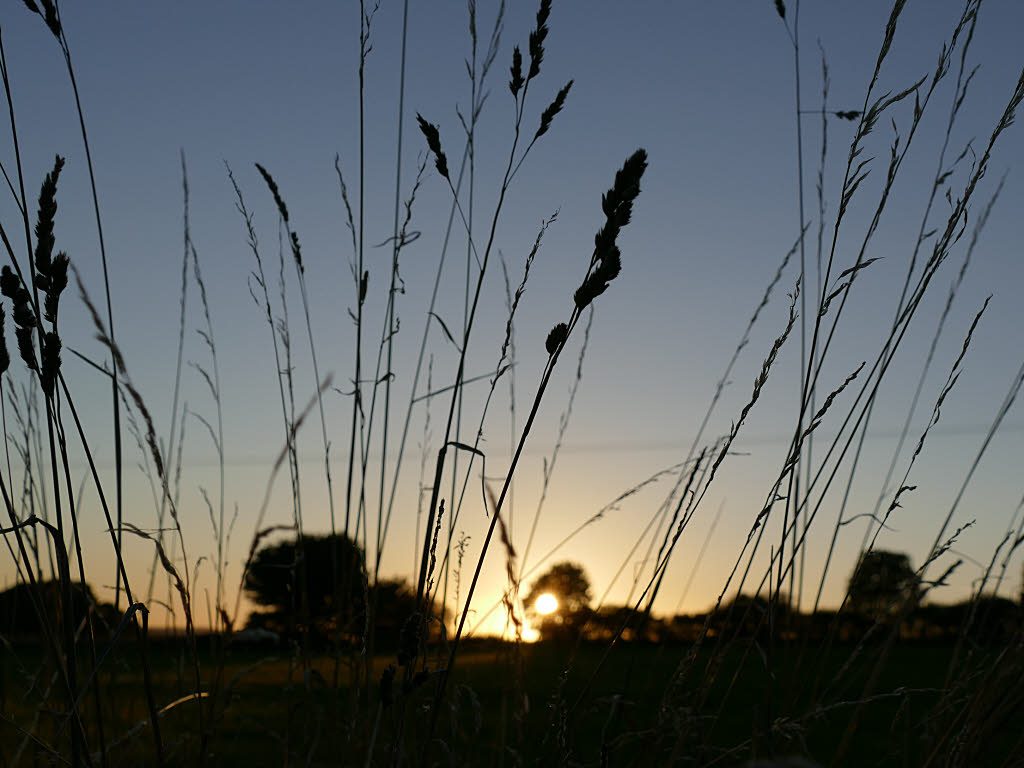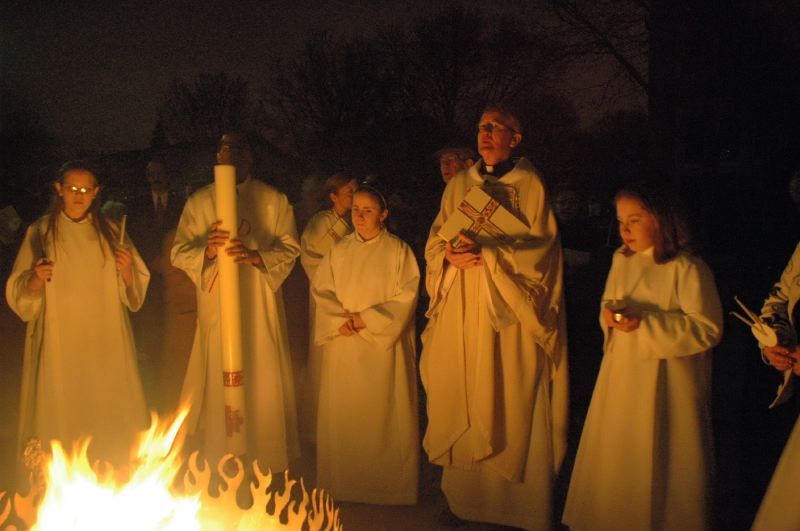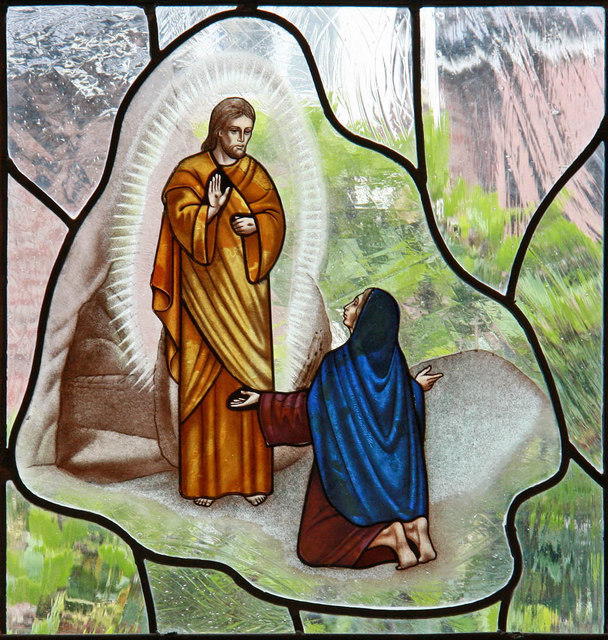A sermon for Bramley St Peter, 26 March 2023
Readings: Ezekiel 37:1-11 / John 11:17-44
Ezekiel was a weird guy. Really weird. He was master of the ‘acted parable’, what we might now call ‘public protest’. Think of Brian Haw who protested in a tent outside Parliament for nearly ten years, or Extinction Rebellion activists gluing themselves to motorways. But that’s nothing to Ezekiel’s protests. For four years he said nothing but acted out the prophesises God gave him as a mime artist would. He lay, bound in ropes, on his left side for over a year to represent 390 years of rebellion against God. During this time (in which he baked bread over cow dung) he had to act out the siege of Jerusalem using a model of the city so as to attract the attention of passers-by. On another occasion he packed his bags and made as if to leave the city through a hole in the wall, as a sign that the walls of Jerusalem were about to be broken down. Such people disturb the complacency with which most of us meekly accept the injustices that we see around us, even when we know that people will suffer if they are not challenged.
This vision of the dry bones was different. It was for Ezekiel’s benefit alone. Now if you think of skeletons as like the plastic ones you might see in a medical student’s room – all connected together, nice and clean and in an obvious human shape, that isn’t usually the case.
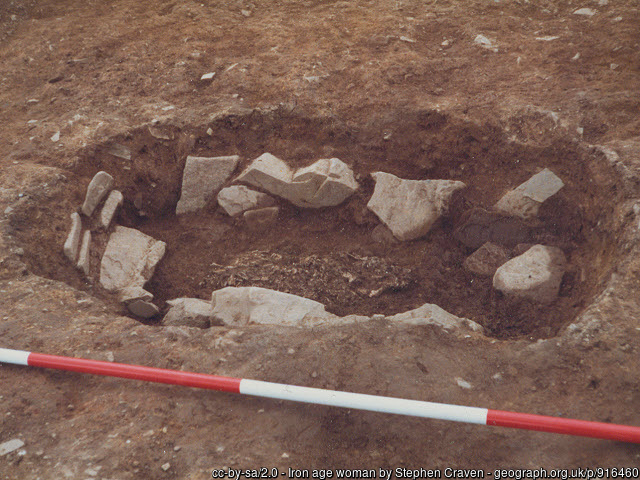
As a student I was once on an archaeological dig, finding nothing more interesting than bits of pottery, when one of my friends found a complete skeleton. And here it is – the remains of a young woman from the iron age. Hard even to make out the individual bones after so long, and not even a human shape. Can these bones live? You’re joking!
The vivid image that God showed to Ezekiel was to demonstrate that the people of Israel and Judah who had been exiled to Babylon were so disconnected, from each other and from their cultural roots and traditions, that they were like a pile of bones that couldn’t even be counted as distinct skeletons. As it says in the last verse: dried up, hope lost, completely cut off. Only the breath of God could reverse what had happened.
And it did. Bone came to bone, sinews and flesh and skin reappeared, and life was breathed back into them. Later in the same book we get the interpretation, as we read the prophecy that all the twelve tribes of Israel would be restored to the Holy Land, on a basis of equality under God once more.
In a word, God had shown Ezekiel that he, and he alone, can reconnect disconnected people to each other, to their land and to himself. And that’s my theme: disconnectedness, something which permeates our society today. Another word for it, used by sociologists, is ‘desocialisation’. It includes the widespread problem of loneliness. I’ve used this quote before, but it’s worth repeating:
“When Andrew Smith died, nobody noticed. His flat, number 171, was at the end of the row on the second floor. His body was discovered when a neighbour, someone he had never talked to, smelt something bad and phoned the police. Andrew Smith had been dead for two months. There were no details of his next of kin, no photos of his family, nothing in his flat to suggest he had any friends. He had nobody, and died lonely.”[1]
But there’s more to disconnectedness than the lonely individual.
Just this week we have heard the damning report of the institutional failings of the Police in London. The charge sheet of sins directed by Ezekiel against God’s people, includes many failings of our own society. It does not take much paraphrasing of the text of chapter 22 to read these charges as: dysfunctional families, injustice for immigrants, insufficient support for the poorest in society, sexual violence, a financial system that leads people into debt, and dishonesty in business. Those charges can certainly be laid against Britain today.
But the charges also include a loss of a sense of what is holy, a failing that is not mentioned in the secular media and yet is at the root of our problems. There is undoubtedly a connection between society becoming more secular and the breakdown of communities. The word ‘religion’ ultimately means ‘connection’ – connection between people as well as between us and God. In the Going Deeper group this week Julia asked us what are the signs of disconnectedness in Bramley today. Some of the answers revolved around a lack of a sense of connection between one small neighbourhood and another, members of the same family not speaking to each other for years on end, and a sense of the injustice of mass movement of people by the council when estates were redeveloped fifty years ago – in the time of the grandparents of the people living there now. Here’s a quotation that isn’t about Bramley but could have been-
“I was in my home town walking down the main street looking in the shops – nobody knows anyone here. Then I remembered how this street used to be with family businesses and names on the shop fronts that never changed, where people spoke to each other … Always somebody spoke to me, knew my name”.[2]
Even within the church I see this problem of disconnectedness. In my job, I often talk to the Churchwarden of some small congregation that is really struggling to keep going, either financially or spiritually. They are so absorbed in their own local troubles that they cannot see the big picture, cannot relate even to the other churches in their own area, let alone the whole Diocese, Church of England or the universal church of billions of believers in Jesus.
And so it was, leaping forward several hundred years, that Jesus came to Bethany, to a community mourning one of its leading men. I just want you to pause for a minute and think where you are in this story of the raising of Lazarus. So often we imagine ourselves in the Gospel stories as in the position of a film crew, next to or in front of Jesus and watching his every move, or as his disciples stood behind him. But it’s unlikely we can identify as Jesus, the one fully in control of the situation. Maybe you’re more like Martha – ever the organised one, coping with grief by being active, going out looking for Jesus as soon as word arrives that he’s on his way, and begging him to act. Or perhaps you’re more like Mary, spiritually aware and seeing the need for healing all around, but confused and inconsolable, desperate to be reconnected to the brother she loved. Or maybe even like Lazarus. Remember – he was the other side of this solid tombstone, bound in strips of cloth, perhaps already awake, but wondering where he was, unable to move or communicate with those outside. Totally lacking in power and control. Like many people today. Do you identify with Lazarus?
As a church we have adopted the mission statement of ‘revealing God’s love in Bramley’. We chose that because we are the fortunate ones, who know that God is here, and that he does love us. We as Christians know we are connected to each other and to God by meeting regularly together, reading the same Bible, saying the same prayers, breaking the communion bread and declaring ourselves to be parts of one body. But few people outside the church community feel that way any more, which is why we are compelled by the love of God to reveal this marvellous truth to those around us.
Through Ezekiel, God reconnected the bones as a symbol of the scattered people of Israel being reconnected to each other and to the promised land. Jesus in Bethany reconnected Lazarus to his sisters as a symbol of us all being reconnected to God, both before and after death. We live in a time when many people feel disconnected from society in the many ways I have described, and God calls us to share in his work of reconnecting people with each other and with him.
So, if you feel like a disconnected bone, ask Jesus to breath his Holy Spirit into you, to reconnect you with the body and bring you back to fullness of life. If you are confused like Mary about all that’s going on and weeping inside for whoever or whatever is missing from your life, ask Jesus the consoler to reconnect you with his love, and share it with others. If you are like activists Martha and Ezekiel, ask God to give you the gifts to bring about his Kingdom and reconnect people through your activities. And if you, like Lazarus, feel there is no way out of whatever entombs you, remember – Lazarus’s tombstone was rolled away, as was the stone that held Jesus in his tomb at Easter. God’s power is sufficient to roll yours way too. Can these bones live? Yes they can! Amen!
[roll away stone!]
[1] A. Leve, Sunday Times, 2/9/2007, quoted by M. Fforde in “Desocialisation”, 2009.
[2] R Weatherill, “Cultural collapse”, 1994, quoted by Fforde p.166.
